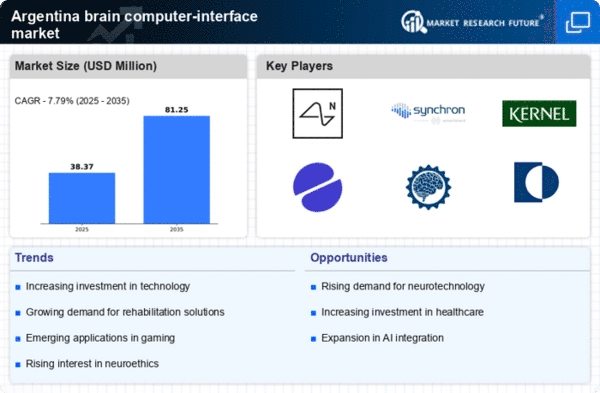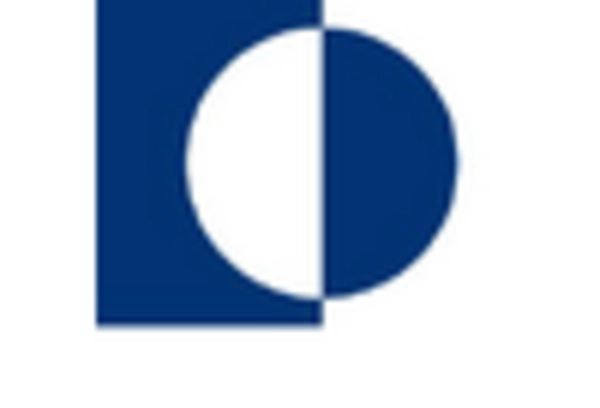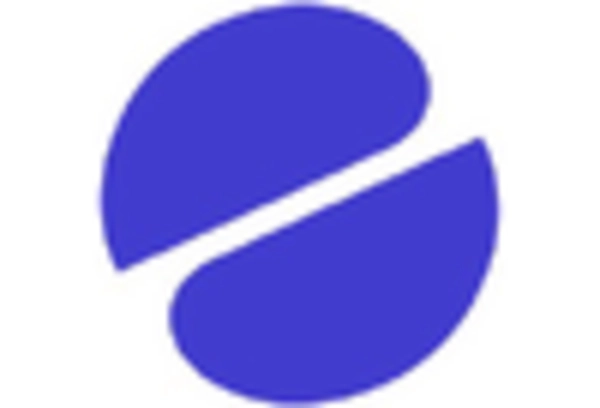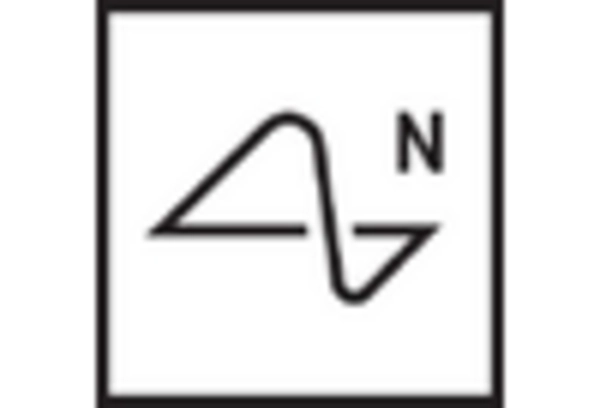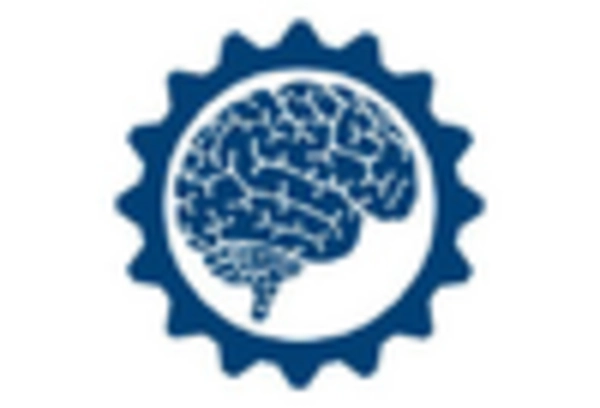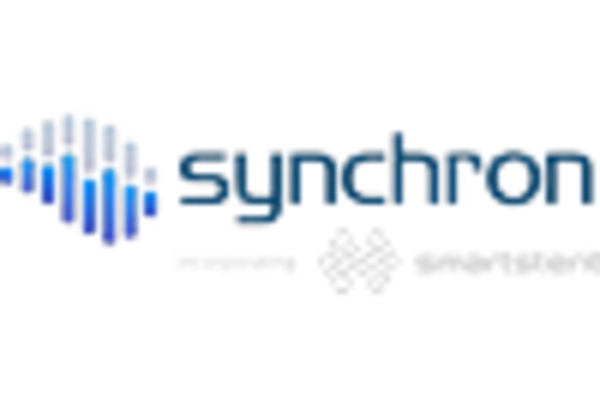Growing Demand for Assistive Technologies
The brain computer-interface market in Argentina is witnessing an increasing demand for assistive technologies, particularly among individuals with mobility impairments. As awareness of these technologies grows, more patients and healthcare providers are seeking solutions that enhance quality of life. The market is expected to expand as more healthcare facilities adopt brain-computer interfaces for rehabilitation purposes. Recent surveys indicate that around 30% of healthcare professionals in Argentina are considering integrating these technologies into their practices. This trend suggests a promising future for the market, as it aligns with the broader movement towards personalized and patient-centered care.
Government Support and Funding Initiatives
Government initiatives in Argentina are playing a pivotal role in the development of the brain computer-interface market. The Argentine government has launched several funding programs aimed at fostering innovation in technology and healthcare sectors. These initiatives are designed to support research projects and startups focused on brain-computer interface technologies. In 2025, the government allocated approximately $10 million to various research institutions to explore new applications of brain-computer interfaces in rehabilitation and assistive technologies. Such financial backing is likely to stimulate growth and attract further investment in the market.
Technological Advancements in Neuroscience
The brain computer-interface market in Argentina is experiencing a surge. This surge is due to rapid technological advancements in neuroscience. Innovations in neuroimaging and signal processing are enhancing the accuracy and efficiency of brain-computer interfaces. For instance, the integration of machine learning algorithms is enabling more precise interpretation of neural signals, which is crucial for developing effective applications. As a result, the market is projected to grow at a CAGR of approximately 15% over the next five years. This growth is driven by increased demand for sophisticated devices that can facilitate communication for individuals with disabilities, thereby expanding the potential user base within the country.
Collaboration Between Academia and Industry
The brain computer-interface market in Argentina is benefiting from enhanced collaboration between academic institutions and industry players. Universities are increasingly partnering with technology companies to conduct research and develop innovative solutions. This synergy is fostering a culture of innovation, where academic research informs practical applications in the market. For instance, several universities have established research centers dedicated to brain-computer interface technologies, attracting both domestic and international partnerships. Such collaborations are likely to accelerate advancements in the field, contributing to the overall growth of the market.
Rising Interest in Neuroethics and Regulation
As the brain computer-interface market evolves, there is a growing interest in neuroethics and regulatory frameworks in Argentina. Stakeholders are increasingly aware of the ethical implications associated with brain-computer interfaces, particularly concerning privacy and consent. This awareness is prompting discussions among policymakers, researchers, and industry leaders about establishing guidelines to ensure responsible development and use of these technologies. The establishment of a regulatory framework could enhance public trust and encourage wider adoption of brain-computer interfaces, potentially leading to a more robust market environment.


